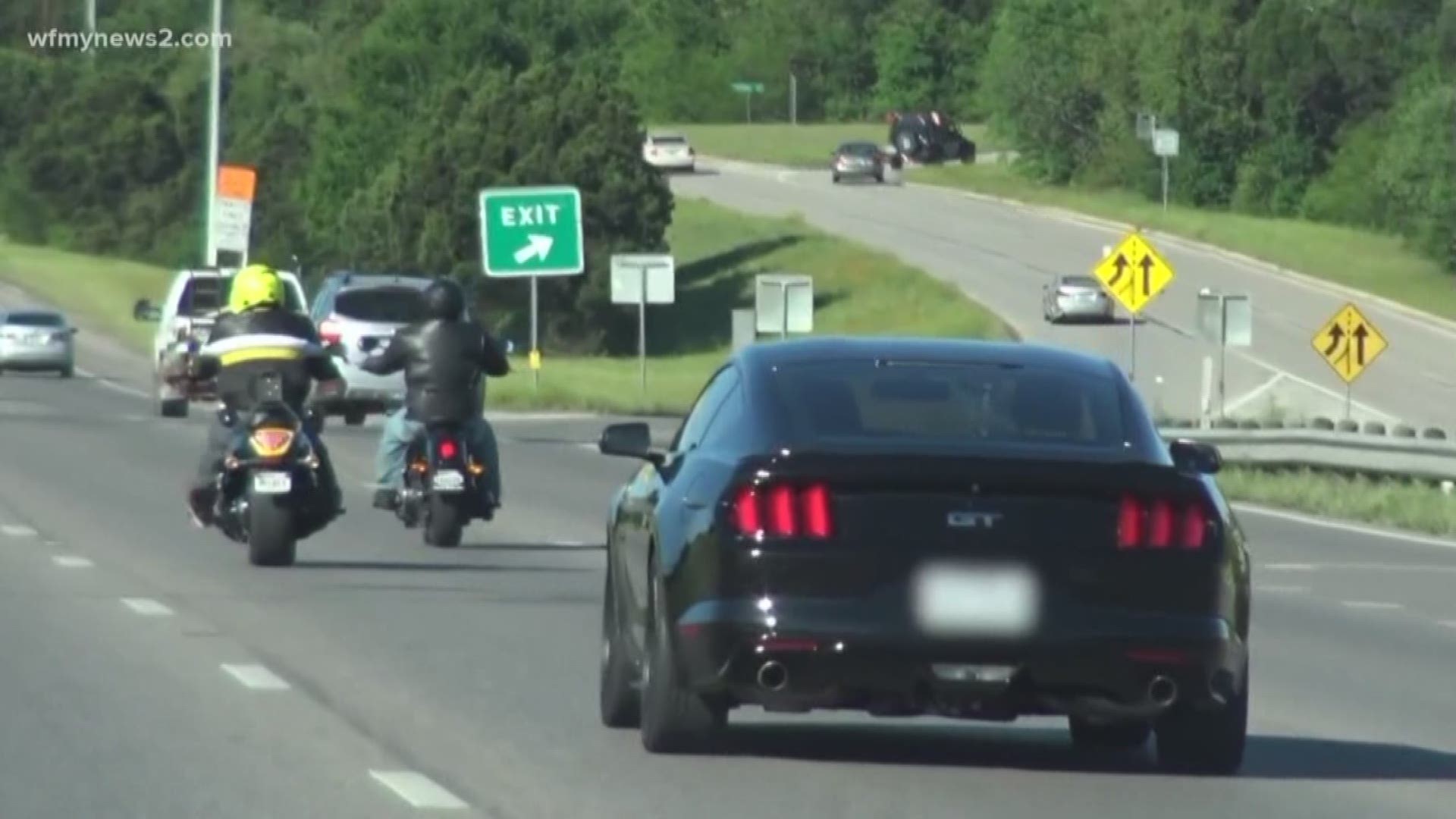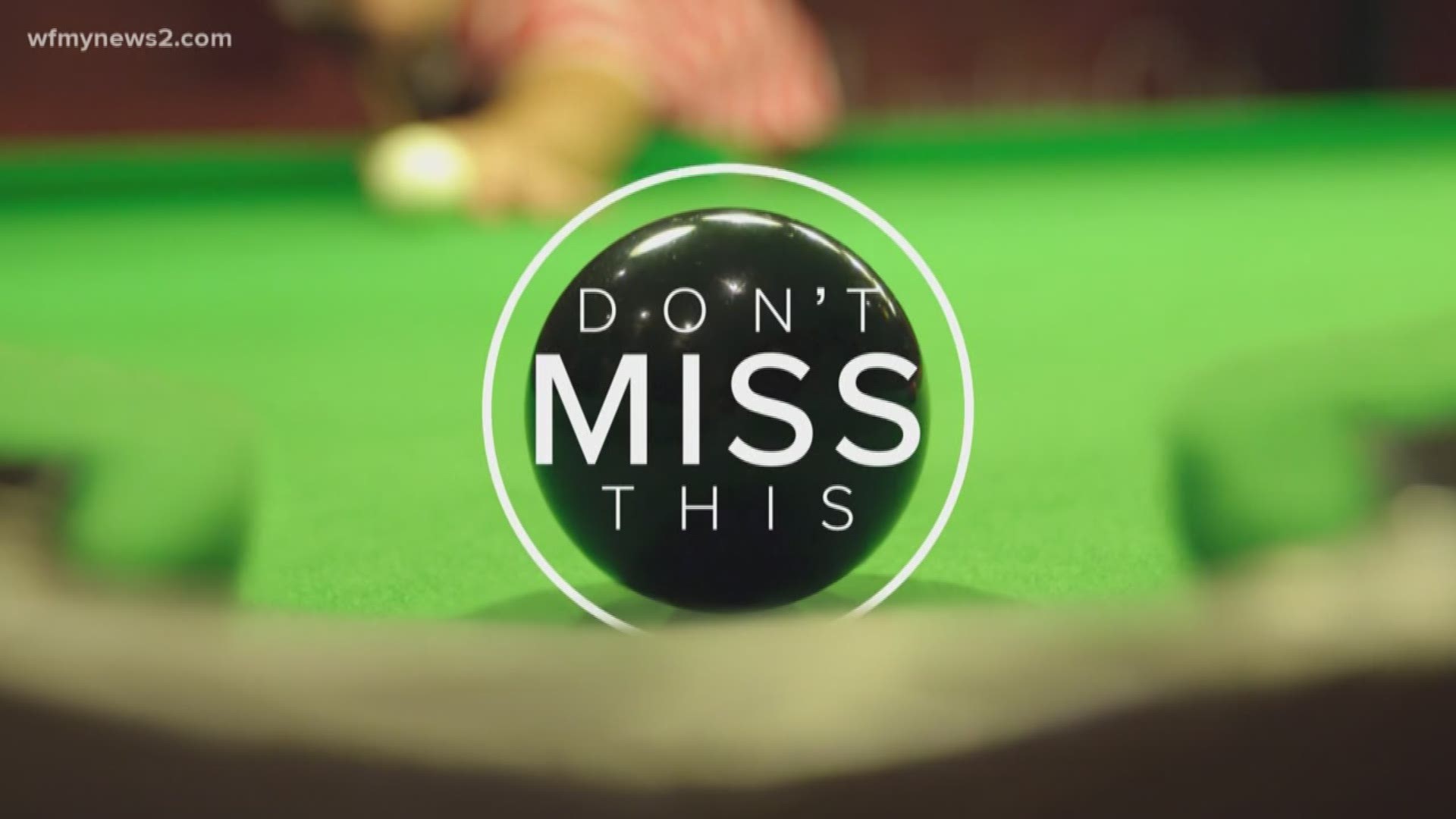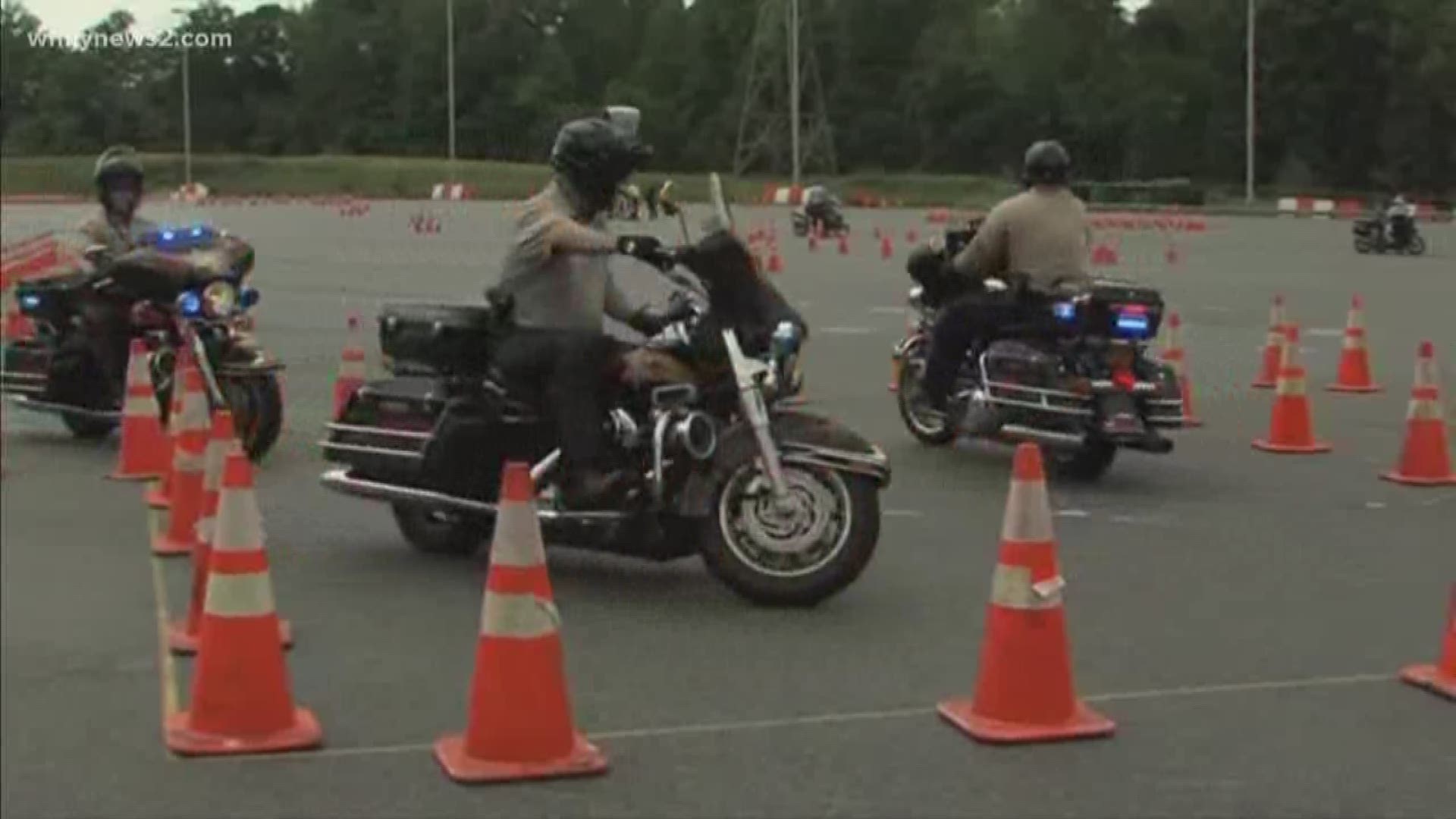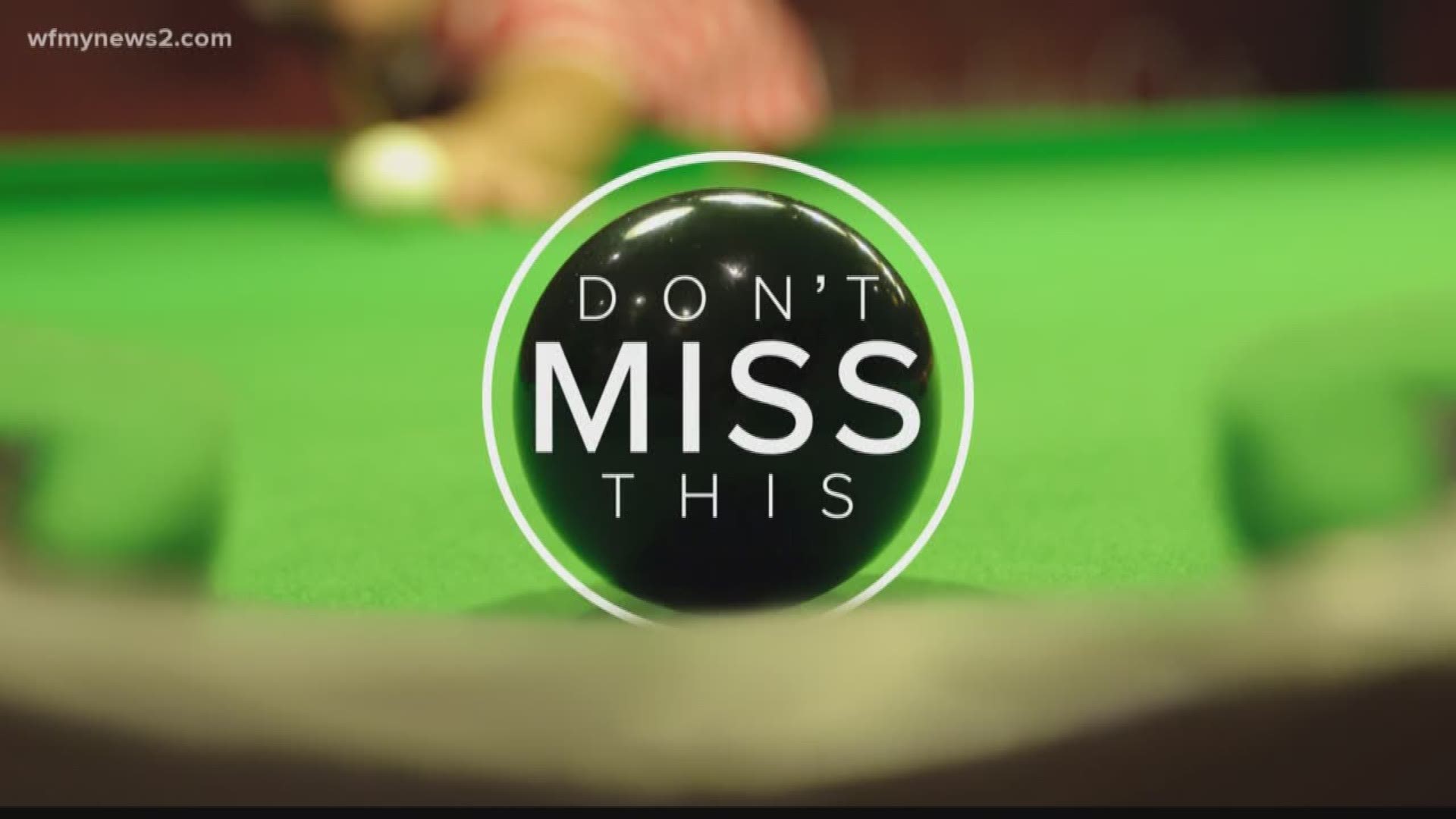GREENSBORO, N.C. - Governor Roy Cooper is sending a reminder to motorists to watch out for motorcycle riders as the summer approaches.
Motorcycle riders are expected to hit the open road as the weather warms up, creating a higher risk for deadly accidents.
According to North Carolina Division of Motor Vehicles, North Carolina has 188,571 registered motorcycles.
In 2017, there were 3,600 motorcycle related crashes that resulted in nearly 592 people being seriously injured and 141 deaths.
Governor Cooper is urging all motorists to recognize the importance of motorcycle safety and share the roadways.
The Guilford County Sheriff's Office partnered with BikeSafe North Carolina to offer motorcycle safety classes for the public.
During the course, motor officers present motorcycle advice to participants to help make riding in North Carolina safer and more enjoyable.
Participants learn about the system of motorcycle control, collision causation factors, and professional riding techniques.
The Rider Skills Days are held during the week and weekends by highly qualified officers.
The day includes both classroom based advice and on-road ride-outs.
For more information about BikeSafe North Carolina Motorcycle Courses, click here.
The National Highway Traffic Safety Administration offers the following Motorcycle Safety Tips:
Wear The Proper Protection:
- Wear a motorcycle helmet at all times.
- Cover your arms and legs completely wearing leather or heavy denim.
- Wear boots or shoes that cover your ankles.
- Wear motorcycle gloves to help protect your hands.
- Wear brightly colored clothing with reflective material to make you more visible to drivers on the road.
Ride Responsibly:
- Know local traffic laws and don't take risks.
- Obey traffic lights, signs, speed limits, and lane markings
- Ride with the flow of traffic and leave plenty of room between your bike and other vehicles
- Always check behind you and signal before you change lanes.
- Remember to ride defensively.
- Proceed cautiously at intersections and yield to pedestrians and other vehicles as appropriate.
Be Alcohol And Drug Free:
- Make sure you are alcohol and drug free when you get on your motorcycle.
- Alcohol and drugs, including some prescribed medications, negatively affect your judgment, coordination, balance, throttle control, and ability to shift gears.
- These substances also impair your alertness and reduce your reaction time.
- Even when you're fully alert, it's impossible to predict what other vehicles or pedestrians are going to do.




